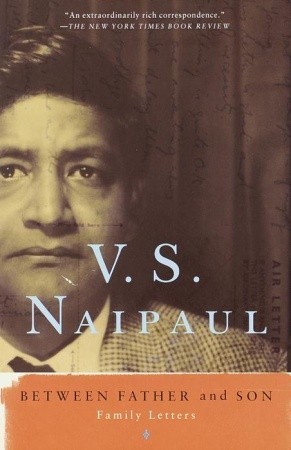
An “extraordinary rich correspondence” ( The New York Times Book Review ) between a seventeen-year-old aspiring writer at Oxford who would go on to become a Nobel Prize winning author and his sacrificing, beloved father. At seventeen, V.S. Naipaul wanted to "follow no other profession" but writing. Awarded a scholarship by the Trinidadian government, he set out to attend Oxford, where he encountered a vastly different world from the one he yearned to leave behind. Separated from his family by continents, and grappling with depression, financial strain, loneliness, and dislocation, "Vido" bridged the distance with a faithful correspondence that began shortly before the young man's two-week journey to England and ended soon after his father's death four years later. Here, for the first time, we have the opportunity to read this profoundly moving correspondence, which illuminates with unalloyed candor the relationship between a sacrificing father and his determined son as they encourage each other to persevere with their writing. For though his father's literary aspirations would go unrealized, Naipaul's triumphant career would ultimately vindicate his beloved mentor's legacy.
Author

Naipaul was born and raised in Trinidad, to which his grandfathers had emigrated from India as indentured servants. He is known for the wistfully comic early novels of Trinidad, the bleaker novels of a wider world remade by the passage of peoples, and the vigilant chronicles of his life and travels, all written in characteristic, widely admired, prose. At 17, he won a Trinidad Government scholarship to study abroad. In the introduction to the 20th-anniversary edition of A House for Mr. Biswas, he reflected that the scholarship would have allowed him to study any subject at any institution of higher learning in the British Commonwealth, but that he chose to go to Oxford to do a simple degree in English. He went, he wrote, "in order at last to write...." In August 1950, Naipaul boarded a Pan Am flight to New York, continuing the next day by boat to London. 50 years later, Sir Vidiadhar Surajprasad "V. S." Naipaul was awarded the 2001 Nobel Prize in Literature "for having united perceptive narrative and incorruptible scrutiny in works that compel us to see the presence of suppressed histories."